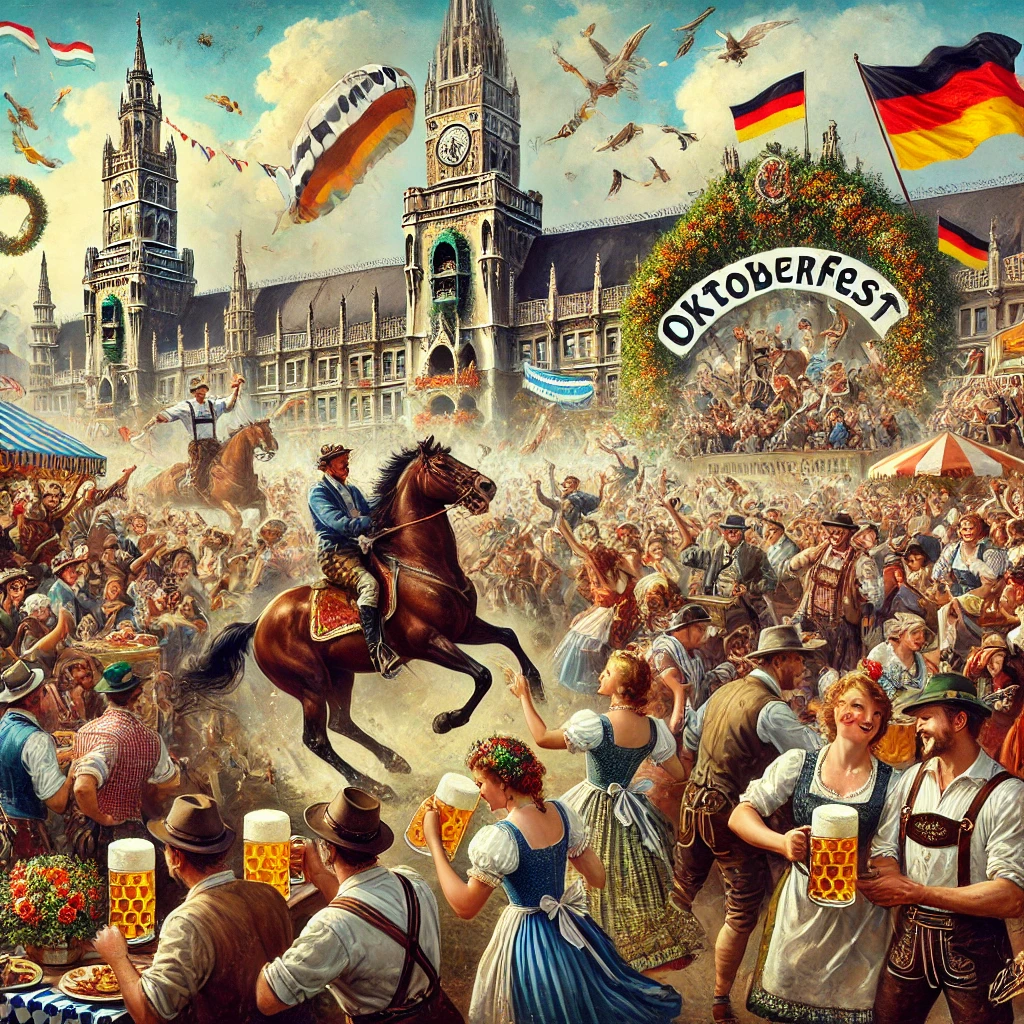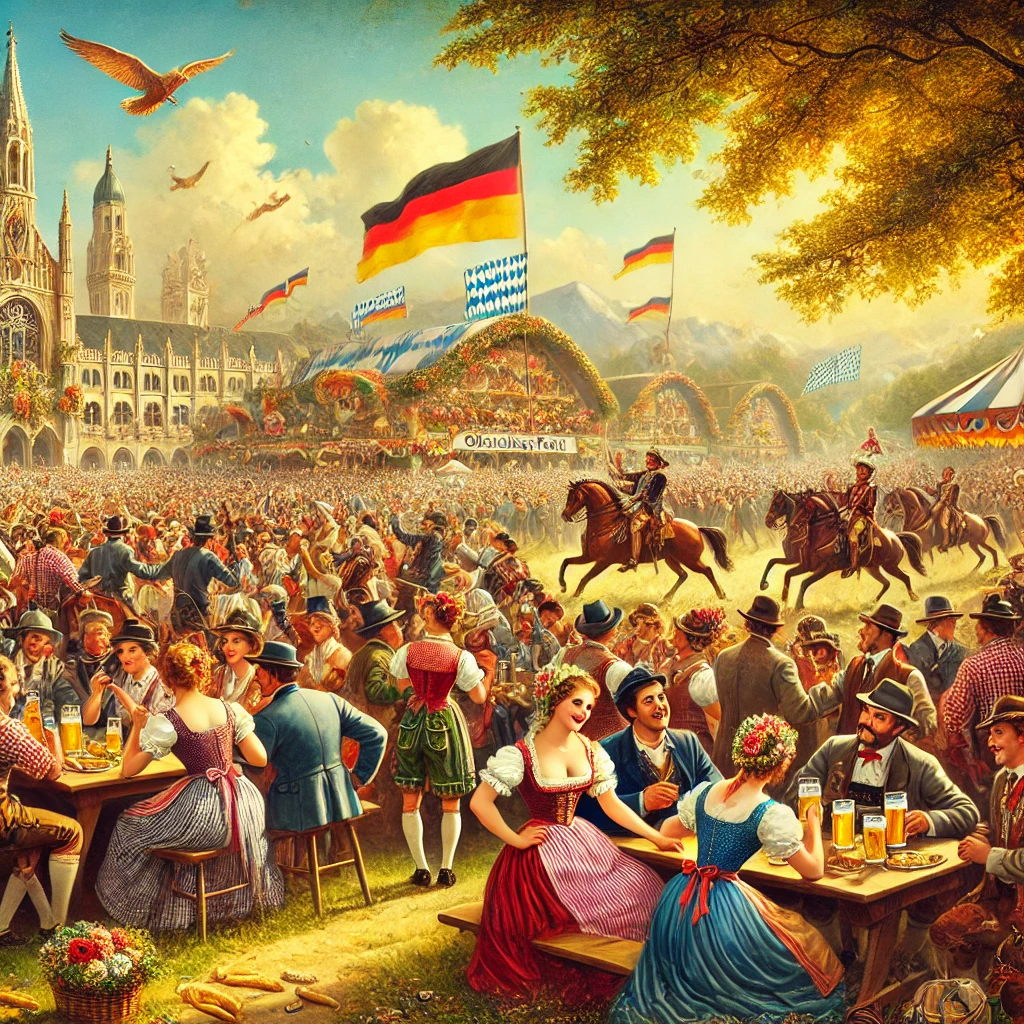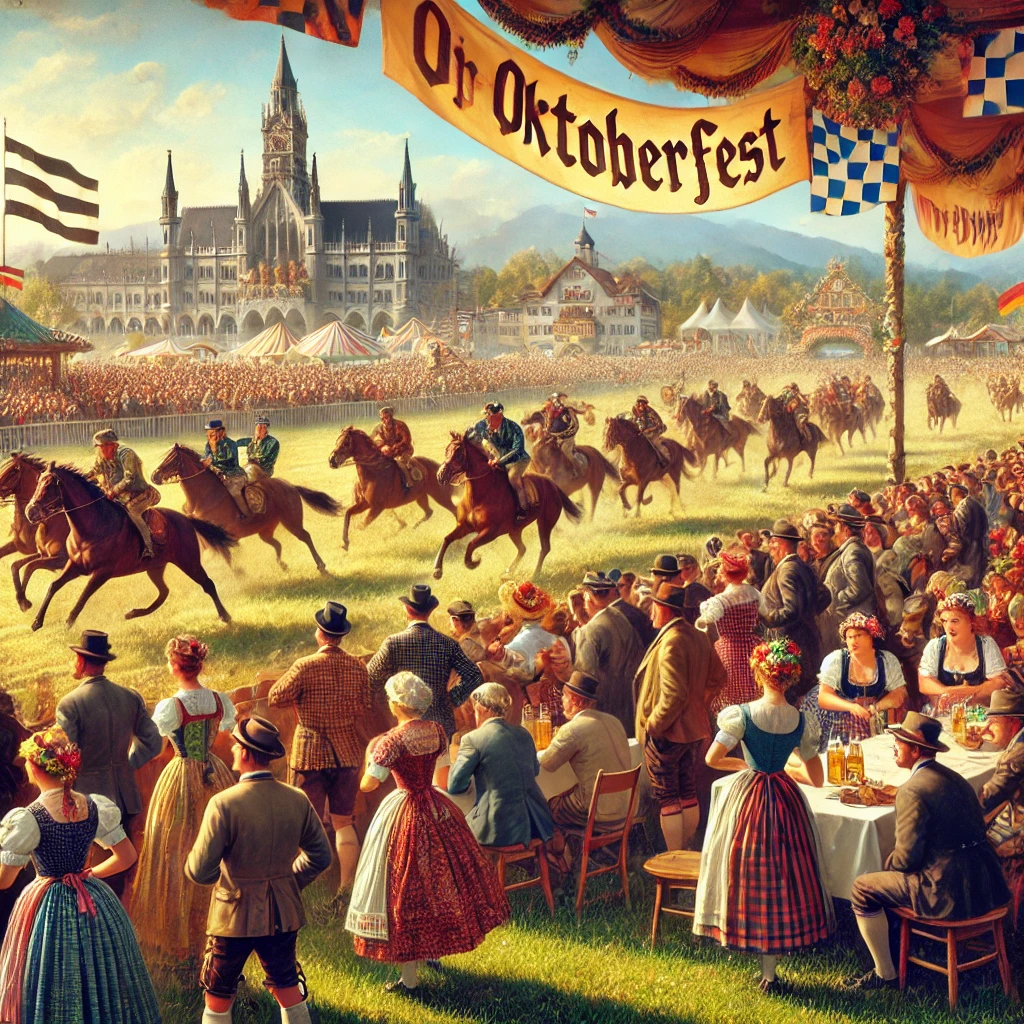On October 12, 1810, the first Oktoberfest was celebrated in Munich, Germany, originally conceived as a grand horse race to honor the marriage of Crown Prince Ludwig of Bavaria to Princess Therese von Sachsen-Hildburghausen. This festive occasion marked the beginning of a cherished tradition that would evolve into one of the world’s largest and most famous folk festivals, celebrated annually and attracting millions of visitors from around the globe.

The Royal Wedding Celebration
The inaugural Oktoberfest was organized to celebrate the union of Ludwig and Therese, a significant event in Bavarian royal history. The festivities took place over several days, featuring not only the horse races but also various entertainment activities, food stalls, and local vendors showcasing Bavarian culture. The lush fields outside Munich were transformed into a vibrant fairground filled with laughter, music, and excitement.
As the crown prince and his bride took part in the celebrations, the event drew considerable attention from the local populace. The horse race, a highlight of the festivities, symbolized Bavarian pride and camaraderie, as townspeople gathered to watch and participate. The marriage festivities set a precedent for future celebrations, as the people of Munich expressed their joy and community spirit through this new tradition.

A Growing Tradition
Following the success of the first Oktoberfest, the festival was held again the following year, gradually expanding its offerings and becoming a staple of Bavarian culture. Over the years, the festival included a variety of attractions, from agricultural shows to amusement rides, further solidifying its place in the hearts of locals and visitors alike. As the years went by, Oktoberfest transformed from a modest celebration of a royal wedding into a grand event that showcased the richness of Bavarian traditions.
By the mid-19th century, the festival had grown significantly, and in 1850, it was officially recognized as an annual event. The introduction of beer tents, serving traditional Bavarian brews, became a central feature of Oktoberfest, attracting beer enthusiasts and casual drinkers alike. The festival quickly gained popularity beyond Bavaria, drawing crowds from across Germany and eventually from around the world.
The Oktoberfest Today
Today, Oktoberfest is celebrated not only in Munich but also in cities across the globe, with various versions of the festival emulating the original. The Munich Oktoberfest itself has evolved into a massive event, lasting 16 to 18 days, during which millions of visitors indulge in traditional foods, enjoy live music, and partake in a wide array of cultural activities. The festival features elaborate parades, traditional folk costumes, and, of course, the iconic beer tents filled with locals and tourists celebrating Bavarian culture.

The festival is not just about beer; it also promotes local artisans, musicians, and the rich culinary traditions of Bavaria. From pretzels and sausages to regional specialties, Oktoberfest has become a celebration of Bavarian heritage and community spirit, fostering a sense of belonging among attendees.
Cultural Significance and Economic Impact
Oktoberfest has grown to have immense cultural and economic significance, not only for Munich but for Germany as a whole. The festival generates substantial revenue for the city and local businesses, with millions of euros flowing into the economy during the event. It also promotes tourism, with visitors traveling from around the world to experience the festivities firsthand, contributing to Munich’s reputation as a vibrant cultural hub.
The first Oktoberfest, celebrated on October 12, 1810, marked the beginning of a cherished tradition that has become a symbol of Bavarian culture and hospitality. What started as a horse race to honor a royal wedding has evolved into a global celebration of community, food, and drink, attracting millions of visitors each year. As we reflect on the origins and evolution of Oktoberfest, we recognize its significance not only as a cultural event but also as a testament to the power of tradition in bringing people together. The festival continues to celebrate the spirit of Bavarian heritage while fostering connections across cultures, ensuring that the legacy of Oktoberfest endures forever.
